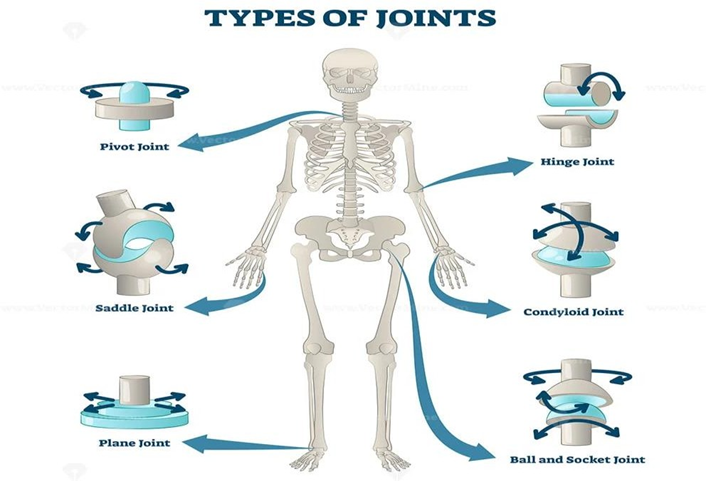The healthcare provider prescribes allopurinol 0.2 grams PO for a client with gout. The available medication is labeled, "Allopurinol tablets 200 mg." How many tablets should the nurse administer? (Enter numerical value only, rounded to the nearest whole number.)
The Correct Answer is ["1"]
1 gram= 1000mg
0.2 grams = 200 milligrams
Since each tablet is 200 mg, the nurse should administer:
200 mg ÷ 200 mg/tablet = 1 tablet
Therefore, the nurse should administer 1 tablet of allopurinol.
Nursing Test Bank
Naxlex Comprehensive Predictor Exams
Related Questions
Correct Answer is D
Explanation
D. Hinge joints are primarily involved in flexion and extension movements. In the case of the arm, the elbow joint is a hinge joint, and bending the arm by flexing the ulna (forearm bone) toward the humerus (upper arm bone) is an example of a movement that exercises this type of joint.
A. This action primarily involves the cervical (neck) spine and the atlantoaxial joint, allowing rotation of the head from side to side. However, these are not hinge joints
B. This action involves movements of the shoulder joint, which is a ball-and-socket joint allowing for a wide range of motion.
C. Tilting the pelvis forwards and backwards primarily involves movements of the hip joint, which is also a ball-and-socket joint.

Correct Answer is B
Explanation
B. Observing the client's upright posture and smooth, steady gait suggests that she is able to ambulate safely without significant risk of falls.
A. This action may be appropriate if the nurse had observed an unsteady or shuffling gait that could increase the risk of falls. However, in this scenario, the nurse has noted that the client's gait is smooth and steady, indicating good balance and stability.
C. The client's upright posture and smooth, steady gait suggest that she has good mobility and balance, which are not indicative of an increased risk of falls.
D. The client's ability to ambulate with an upright posture and smooth, steady gait indicates that she is tolerating activity well. However, the primary focus at this point should be on documenting her functional abilities and assessing her level of independence in performing ADLs safely.
Whether you are a student looking to ace your exams or a practicing nurse seeking to enhance your expertise , our nursing education contents will empower you with the confidence and competence to make a difference in the lives of patients and become a respected leader in the healthcare field.
Visit Naxlex, invest in your future and unlock endless possibilities with our unparalleled nursing education contents today
Report Wrong Answer on the Current Question
Do you disagree with the answer? If yes, what is your expected answer? Explain.
Kindly be descriptive with the issue you are facing.
